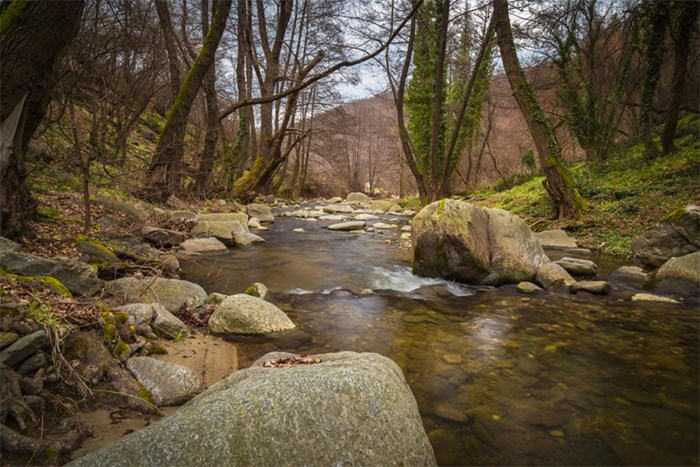 Spawning deterrents are used to avoid serious harm to fish during construction. A special mat is placed in the waterway. It prevents fish from spawning in the area and, thus, minimizes mortality to eggs and larvae during construction. Photograph By Pexels
Spawning deterrents are used to avoid serious harm to fish during construction. A special mat is placed in the waterway. It prevents fish from spawning in the area and, thus, minimizes mortality to eggs and larvae during construction. Photograph By Pexels
Kinder Morgan Canada has asked the National Energy Board for some leniency after the company was told last week to stop installing special mats that deter fish from spawning.
On Sept. 14, the NEB discovered Trans Mountain staff had been doing the installations along the new pipeline route.
The national energy regulator said deploying the mats constitutes as construction, and the start of construction has not been authorized in those areas.
The NEB sent a letter to Kinder Morgan on Sept. 22, asking the company to halt all work. (Eight mats were installed in total, with another five remaining. Seven are located in the Valemount/Blue River area, and the other is in Hinton, Alta.)
In a letter sent to the NEB on Sept. 28, Shawn Denstedt, a Calgary-based lawyer representing Kinder Morgan, said Trans Mountain staff need to install the rest of the mats before spawning season starts.
“This mitigation measure is only effective if the deterrent matting is installed prior to fish arriving to spawn. If the spawning deterrents are installed too late, the benefit of reduced mortality to eggs and larvae will not be realized and there may be greater impacts to fish due to construction.”
If the request isn’t granted “expeditiously,” the lawyer said construction at those crossings could be delayed by a year, potentially impacting the pipeline project’s in-service date of December 2019.
Kinder Morgan wants mats installed at three crossings through the Coquihalla region – Ladner Creek, Dewdney Creek and Karen Creek – and at another unnamed crossing.
Another concern, according to the letter, is having construction take place when the water is high.
“If flows are too great, Trans Mountain may be required to employ a contingency open-cut crossing method, which may result in greater impacts to fish than the planned approach and may trigger the need for a Fisheries Actauthorization that could ultimately create project delay,” the document reads.
NEB spokesperson James Stevenson told the NOW the National Energy Board is currently reviewing Kinder Morgan’s request.
“The NEB panel looking at this will take whatever time they need to ensure safety of the environment and of Canadians,” he said. “We don’t have any comment right now.”
Read more from Burnaby Now


